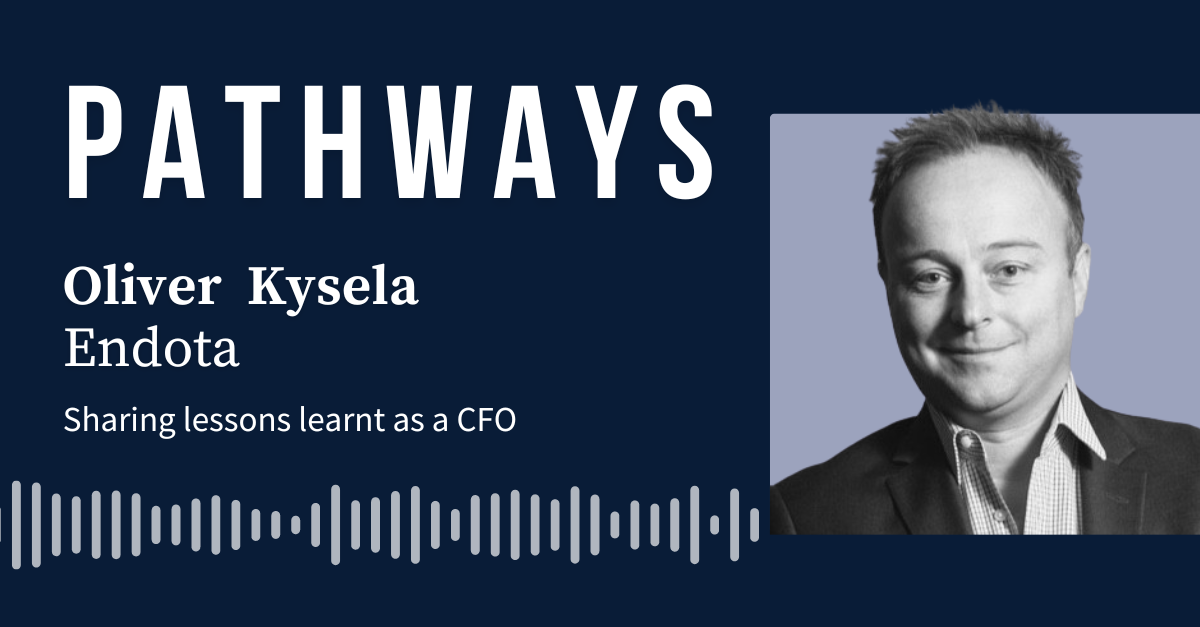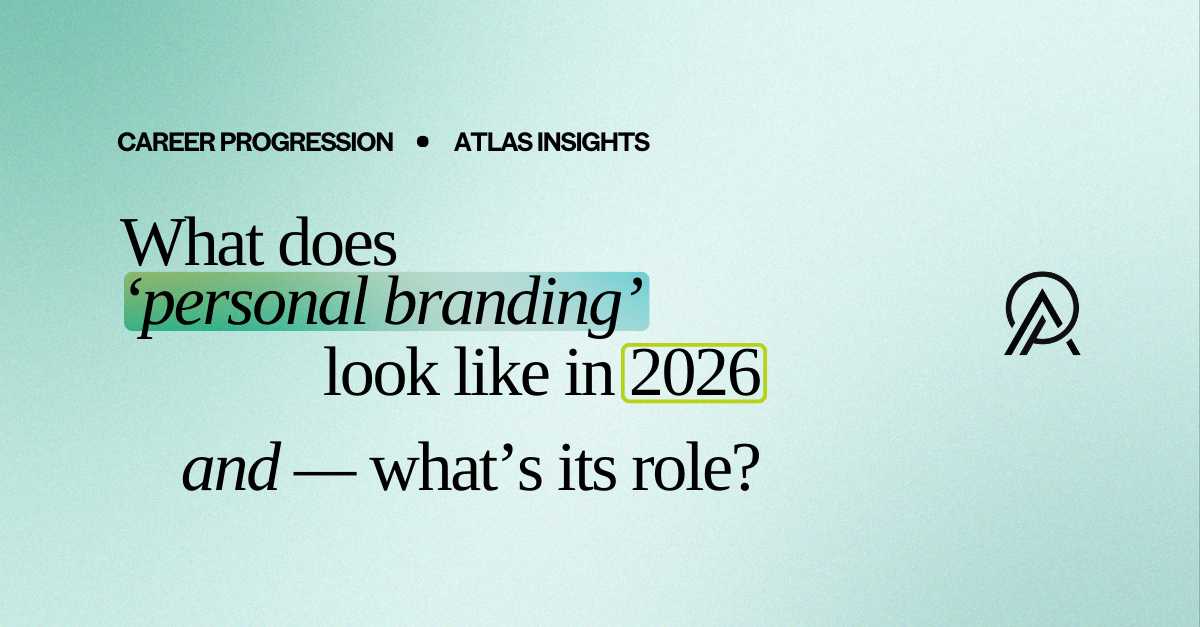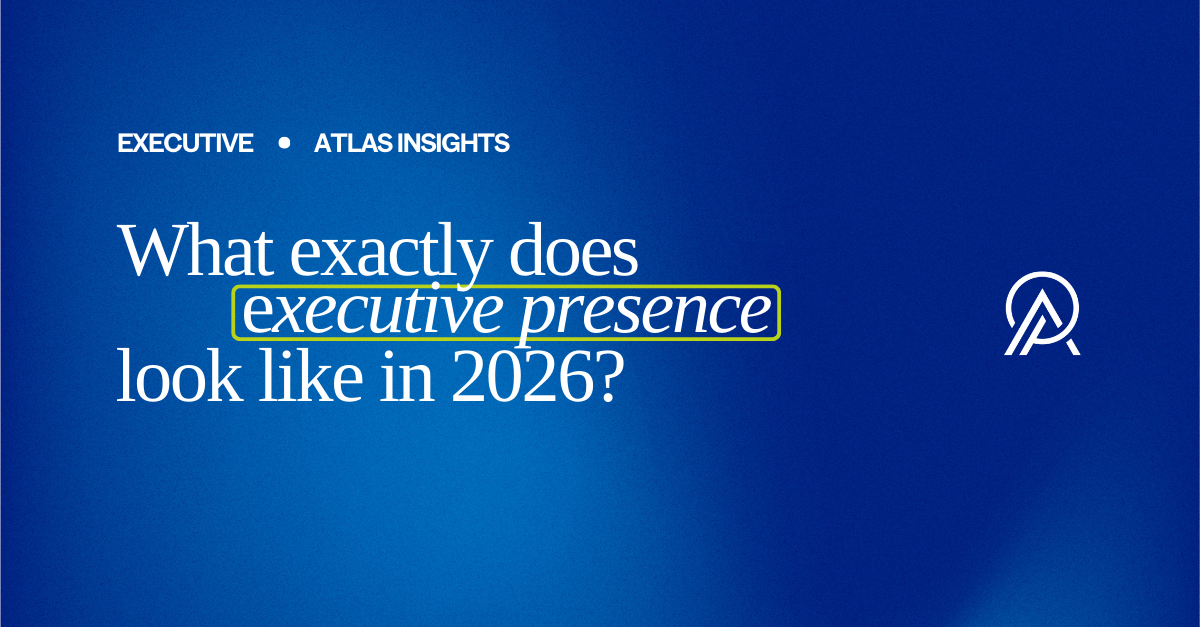Pathways — Oliver Kysela, Endota
From moving from professional services into his first commercial role as Financial Controller, Oliver has walked a path full of challenges which have shaped his CFO capabilities.
Craig Gorton, Director of Atlas Partners, sits down with Oliver Kysela, CFO of Endota, and walks through his professional career to date, challenges, mentors and key learnings.
Oliver, can you walk us through your career transition and some key moments that have shaped your professional journey?
Certainly. I started my career at Ernst & Young in 1994 and attained my CA accreditation. In 2001, I moved to Country Road Limited, marking a pivotal shift from professional services to a commercial role. Country Road was a well-known brand with strong brand equity, but it faced significant business model challenges. We had a turnaround plan developed by the CEO and leadership team, and my role as Financial Controller was very proximate to the implementation of this strategy. However, shortly after I started, the events of September 11 occurred, leading us to file for Chapter 11 insolvency protection in the US within days. This crisis accelerated our turnaround efforts over the next four years.
Reflecting on this period, I consider it a formative experience that shaped my approach as a CFO. I became the CFO of Country Road Limited in 2006, and later moved to Spotlight Retail Group in 2009. I then moved to Witchery Group in 2012 where I led its sale to Country Road Limited later that year, which also resulted in my return to Country Road Limited as CFO of a much larger and now more profitable Group. Following the integration of Witchery Group and the privatisation of Country Road Limited, I moved to Forever New Group as CFO and after that to Edison Partners in M&A Advisory.
In 2021 I joined Grill’d Group as CFO and late last year I became CFO of Endota, with these two roles marking a shift from consumer goods to consumer goods and services. This change required a new way of thinking and problem-solving, particularly in leveraging data insights, and managing labour-intensive and technical skill-based operations.
Your journey is quite remarkable. What foundational lessons have you carried from your early career into your current roles?
One key lesson for those starting out is the importance of building a reputation over time of competence and reliability. My first job in High School was as a kitchen hand and cocktail barman, where I learned the value of being dependable in a team machine. This attitude carried over to my time at Ernst and Young, where I was in the minority with a public-school background in the graduate intake. I was motivated by a fear of failure of this great opportunity at a global consulting giant, and tried to build a point of difference in that high performance environment through aiming to excel in every task given to me, no matter how unglamorous, hoping that doing it well and on time would be valued and lead to better opportunities later, which it did.
Coaching and mentoring have also been crucial for me. Trusted mentors apply lessons from personal experiences to professional scenarios, making their advice more relatable. This guidance has been instrumental in my development.
Another significant professional lesson is my inherent and native focus on cash management and liquidity, learnt by stealth during times of crisis. Early in my time at Country Road, we faced near insolvency multiple times, which ingrained in me the importance of cash flow management and forecasting and maintaining a strong capital base to ensure business stability.
How did you end up in the retail sector, and was it what you expected?
My entry into retail was somewhat accidental. Country Road Limited was acquired by Woolworths South Africa in 1997, and Ernst and Young, who were their auditors in South Africa, needed assistance with the audit of the newly acquired investment in Australia. I was in the Minerals and Energy team at the time but was one of few available at short notice to work on the project, which led to my enduring involvement with Country Road.
Retail is relatable to everyone given we all buy things almost every day across multiple channels. Retail and consumer goods involves a comprehensive value chain, from design and production through to multi-channel customer interaction. It’s a fascinating industry with as many opinions as facts, and with many opportunities for problem-solving and innovation. Working for many great brands has allowed me to appreciate the intangible value of strong brands that connect with their tribes. Brand equity or value isn’t often reflected on a balance sheet unless it has been acquired in an M&A transaction and a value attributed to it through acquisition accounting rules.
Moving through to your current role and working with Endota in the consumer services industry. That’s something that’s new for you in many ways. I’d be interested to know a little bit more about what you see the future looking like from a CFO perspective in the consumer services industry, and within that, what are the challenges and opportunities?
The first thing, which is agnostic to any industry, is leading strategy and transformation. If we think about the last few years with COVID, the amount of crisis management, structural change and agile strategic pivoting that was required in most businesses was immense. Some won, some lost, most got through the other end.
Then we have the recent challenges around global supply chains and broad-based inflation. There hasn’t been a period of time I can remember, other than the GFC, where there’s been such significant change and a need to think more laterally about the macro factors that impact a business. Leading strategy and transformation effectively, with a strategic methodology underpinning it, is a crucial success factor in my opinion. Doing that in a way that makes change fun and with effortless rhythm, as opposed to it being daunting, is important and sits comfortably within the CFO sphere to influence and drive.
In the last seven months since I’ve been with Endota, we’ve implemented a new ERP, rolled out a new POS across the owned and franchised network, moved from Google to Microsoft, and all of that has been done in less than seven months. We’ve adopted the Metronomics methodology of strategy setting and delivery, which informs our strategic priorities for delivering transformation.
The second theme is the need to digitize and automate, driven by challenges with the tight labour market. This was a major theme at a Metronomics conference I attended in Canada recently. There’s a structural demographic challenge globally around accessing sufficiently skilled labour which will only continue to deteriorate. This has accelerated the need for digitization and automation of repetitive tasks which is now essential rather than a concept. The need to fractionalize a business’ cost base has become even more critical with the significant inflationary inputs we’ve seen in the last two years.
Thirdly, establishing and producing data analytics and RPA is vital. We understand the tools and technologies, but effectively managing and utilizing them within an organization is the challenge. Developing a productive loop of designing, delivering and analysing data is key in an organisation, and being central to building this out at Grill’d provided me with a modern prototype for what this looks like in a commercial environment.
Lastly, liquidity and capitalization have returned as significant considerations. The cost of debt and capital has structurally changed, and there is now a greater emphasis and involvement from investors on ensuring their investments meet higher hurdles for returns.
It’s a really important point. More conversations I’m having suggest that this is at the forefront of decision-making. Moving on to lessons from your career as a CFO, what would be your top three lessons?
Number one is maximizing enterprise value, which for me involves three steps: firstly being a great brand, then being a great business, and lastly being a great company. You can have a great brand, but it must also be a great business model invested in the right channels that maximises cash returns. Underpinning this is good governance, stakeholder management, and culture – all features of being a great company.
Second, a great piece of advice I received early in my CFO journey was that you can never over-prepare for board and investor meetings, AGMs, and any mergers or acquisition activity. There are always challenging questions and issues that arise in these forums to be prepared for, and the stakes are typically high for Boards and management to manage these challenges effectively.
Third, a piece of advice I received from an executive coach was whether I wanted to be “right” or whether I wanted a relationship, when dealing with peers, friends, and family. This value and prioritising of relationship-building was a crucial turning point for me in how I interacted with people, especially investing time with peers at work outside of structured meetings. This helped to build trust and partnerships so that those meetings demonstrated cross-functional consensus and team-based solutions, which in turn demonstrated to the CEO that their team was working effectively together outside of their line of sight.
Those are great points. Moving into a discussion on mentors, have you had any valuable mentors or anyone who’s had a strong impact on your career?
Yes, a couple stand out. My predecessor CFO at Country Road, who was also my audit manager at EY, took me under his wing. Without his advocacy, I wouldn’t have been afforded the opportunity to become the CFO at Country Road. We still catch up annually and help out each other from time to time when we can.
Another significant influence was my executive coach. When I first became CFO at a relatively young age, I struggled to transition effectively into the executive leadership team. Embracing coaching helped me improve my contribution and relationship-building skills.
Thanks for sharing. Any advice you have for future leaders?
Leadership is selfless. If you achieve all your individual plans but neglect your team’s needs, it’s a team fail. Helping your team achieve their goals as a priority is essential for a great team day, even if you didn’t get to half the list of things you had planned for that day.
Letting feeling prevail over thinking is important for matters of culture and team satisfaction. Ensuring your team enjoys coming to work and takes a net positive day home I believe is an essential element of high performing and satisfied teams.
Finally, building strong and trusting relationships with direct reports is key. My aim is that if at some point in the future they see an opportunity to progress outside the company that I can’t provide, I would hope that they would feel comfortable asking me to help them get there as a referee/advocate. It is very rewarding seeing people you have helped develop moving into leadership roles in different organisations.
I’m over 50 now Craig and I’m also starting to realise that some of the great people I’ve had the privilege to help develop in their careers may one day soon start to provide me with new opportunities through their advocacy as leaders of organisations as I transition my career to more Board and advisory roles.
That’s a great way of looking at it. Thank you for sharing these insights. And finally, an insight to your personality, what’s your favourite book and why?
My current favourite book is “Accelerating Excellence” by James A. King. I find it fascinating because it explores the link between elite performance excellence and both psychological and scientific inputs and outputs. James, who I had the chance to meet recently, has a compelling and credible way of explaining elite performance which resonates. I’m eager to apply some of the insights from the book in corporate settings but also, and perhaps with more effect, sharing with my connections in an elite sporting organisation.





